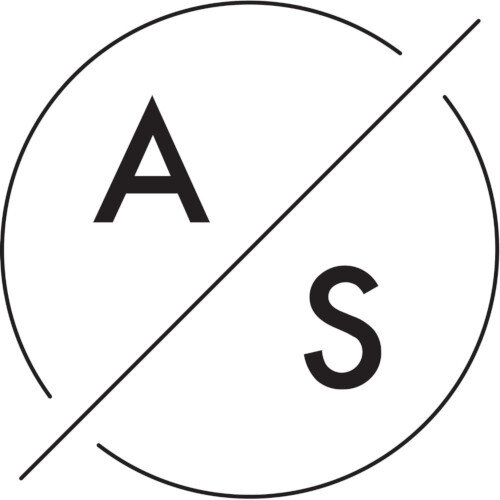Best International Trade Law Lawyers in Acharnes
Share your needs with us, get contacted by law firms.
Free. Takes 2 min.
List of the best lawyers in Acharnes, Greece
About International Trade Law in Acharnes, Greece
International trade law covers rules and practices that govern cross-border movement of goods, services and investments. In Acharnes, Greece, matters of international trade are shaped by a combination of European Union law, Greek national law and international treaties. For most businesses and individuals in Acharnes the practical effects of international trade law appear in customs procedures, import-export documentation, VAT and excise treatment, trade remedies, export controls and sanctions, and contract terms for cross-border transactions.
Because Acharnes is part of the Attica region near the greater Athens commercial area, companies and traders in Acharnes typically deal with port and customs offices, freight forwarders and legal counsel based in Athens and Piraeus. Advice from a lawyer familiar with Greek, EU and international trade rules helps prevent costly delays, compliance breaches and disputes.
Why You May Need a Lawyer
You may require legal assistance in international trade for several common situations:
- Customs disputes and classification issues - determining tariff codes, correcting erroneous customs declarations, or challenging customs assessments and fines.
- Import or export controls and sanctions - ensuring compliance with EU export controls, embargoes and national restrictions, and obtaining necessary licenses.
- Trade contracts and logistics - drafting or reviewing sales contracts, INCOTERMS, agency and distribution agreements, and shipping documents to allocate risk and responsibility.
- Trade remedies and anti-dumping - responding to investigations or defending your interests in anti-dumping, countervailing duty or safeguard proceedings.
- VAT, duties and tax disputes - resolving VAT registration, refund claims, intra-Community supply issues and disputes with tax or customs authorities.
- Product regulation and compliance - meeting technical standards, labeling rules, and health or safety requirements for import and export.
- Dispute resolution and enforcement - pursuing or defending contract claims, arbitration proceedings or enforcement of foreign judgments.
- Licensing, permits and export controls - obtaining clearances for controlled goods, dual-use items or technology transfers.
Local Laws Overview
Key aspects of law relevant to international trade in Acharnes include the following:
- European Union law - As an EU member state, Greece applies EU customs code, common external tariff, VAT rules for cross-border transactions within the EU, and EU trade sanctions and export control regimes. EU regulations often have direct effect in Greece.
- Greek customs and tax law - National implementing legislation and administrative practice determine customs procedures, duty assessment, appeals, and VAT rules. The national authority responsible for customs administration and indirect taxes issues procedural guidance and decisions that affect day-to-day compliance.
- Administrative procedures and appeals - Customs and tax decisions are typically subject to administrative remedies followed by judicial review in administrative courts. Deadlines for objections and appeals are strict and must be observed.
- Commercial law and contract law - The Greek Civil Code and commercial law principles govern domestic aspects of trade contracts, contractual remedies, liability and limitation periods. Parties may choose dispute resolution mechanisms such as litigation in Greek courts or arbitration.
- Sanctions and export controls - EU and Greek measures restrict trade with certain countries and regulate exports of dual-use goods, military items and certain technologies. Violations can lead to heavy penalties and criminal exposure.
- Sector-specific regulation - Certain products, like pharmaceuticals, foodstuffs, chemicals and electronics, are subject to specific safety, labeling and licensing rules that apply to imports and exports.
Frequently Asked Questions
Do I need a local Greek lawyer to handle an international trade matter in Acharnes?
For proceedings before Greek administrative or civil courts and for interactions with Greek authorities, engaging a local lawyer is strongly recommended. A Greek lawyer understands applicable national and EU law, procedural rules, local practice and language requirements. For arbitration or cross-border transactions, you can also use foreign counsel but will usually retain local experts for national procedures and enforcement.
How do I challenge a customs decision or fine?
Challenges typically start with an administrative objection or appeal to the customs authority within a statutory deadline. If the administrative remedy fails, you can bring a case before the competent administrative court. Deadlines are strict and evidence should be gathered promptly. A lawyer can prepare the objection, assemble documentation and advise about interim measures that may limit enforcement while the appeal is pending.
What documents are commonly required for importing goods into Greece?
Common documents include commercial invoices, packing lists, transport documents (bill of lading, airway bill), certificates of origin, any required licenses or permits, insurance documents and declarations required by customs. Specific products may require additional certificates such as health attestations, conformity certificates or safety data sheets.
How are customs duties and VAT calculated on imports?
Customs duties are generally based on the customs value of goods, tariff classification and origin rules. VAT is charged on the taxable base which includes customs value plus duties and other applicable taxes and fees. EU rules and national implementing provisions determine the exact calculation and any available exemptions. A lawyer or customs broker can advise on valuation methods and reliefs that may apply.
What are the risks of exporting controlled goods from Acharnes?
Exporting controlled goods - including dual-use items, certain technologies and military-related products - without the necessary licenses or authorizations can lead to administrative sanctions, seizure of goods and criminal liability. You must classify goods correctly, check whether exports require a license under EU or Greek law and obtain approvals before shipment.
Can I use arbitration instead of going to court in Greece?
Yes, parties can agree to resolve trade disputes by arbitration. Greece is supportive of arbitration and recognizes valid arbitration agreements. Arbitration can be faster and more confidential than court litigation, but enforcement of awards and the need for local counsel should be considered when drafting arbitration clauses.
What should I include in an international sales contract to reduce trade risk?
Important elements include clear identification of the goods, price and currency, delivery terms (INCOTERMS or equivalent), risk transfer, payment terms and security (letters of credit or guarantees), warranties and liability limits, applicable law, dispute resolution method, force majeure, compliance with export controls and insurance provisions.
How do EU sanctions affect my business in Acharnes?
EU sanctions are binding in Greece. They can restrict trade with certain countries, prohibit dealings with designated persons and require asset freezes or reporting obligations. You must screen counterparties, implement compliance controls and seek legal advice if sanctions could apply to your transactions.
What are typical fees and timelines for trade law cases in Greece?
Fees vary based on complexity, lawyer experience and the type of matter. Administrative or customs appeals can take several months to years depending on backlog and case complexity. Litigation timelines in civil or administrative courts are often lengthy. Many firms offer initial consultations and can provide fee estimates or alternative billing arrangements for specific matters.
How can I prepare before contacting a lawyer about an international trade issue?
Gather all relevant documents - contracts, invoices, transport documents, customs declarations, correspondence with authorities and notices of fines or assessments. Make a clear chronology of events and identify key deadlines. Note any urgent risks such as imminent seizures or export bans. This preparation helps your lawyer assess the case quickly and advise on next steps.
Additional Resources
Helpful organizations and bodies to consult in Greece and the EU include:
- Greek Independent Authority for Public Revenue - responsible for customs and indirect taxation procedures.
- Enterprise Greece - national investment and export promotion agency providing guidance to exporters.
- Hellenic Ministry of Foreign Affairs - for treaty and consular matters that may affect trade relations.
- Hellenic Chamber of Commerce and local chambers in Attica - business support, trade information and networking opportunities.
- Athens Bar Association - for lists of qualified lawyers and professional guidance.
- European Commission - Directorate-General for Trade and EU customs legislation resources for rules that apply across member states.
- World Trade Organization - for international trade rules and dispute settlement principles.
Next Steps
If you need legal assistance in Acharnes for an international trade matter, consider the following practical next steps:
- Act promptly - identify any statutory deadlines or pressing enforcement risks and preserve evidence immediately.
- Collect documentation - assemble contracts, transport and customs paperwork, invoices and any official correspondence.
- Seek an initial consultation - contact a lawyer who specializes in international trade, customs and EU law. Ask about experience with similar cases, likely strategies and fee structures.
- Prepare to authorize representation - you may need to sign a power of attorney for your lawyer to deal with authorities or courts on your behalf.
- Consider mitigation measures - instruct your logistics provider or customs broker to suspend shipments if advised, and implement internal compliance checks for sanctions and export controls.
- Explore alternative dispute resolution - evaluate whether negotiation or arbitration could resolve the matter faster and at lower cost than court proceedings.
Working with a qualified local lawyer will help you navigate the intersection of EU rules, Greek law and international obligations and will increase the likelihood of a timely and practical outcome.
Lawzana helps you find the best lawyers and law firms in Acharnes through a curated and pre-screened list of qualified legal professionals. Our platform offers rankings and detailed profiles of attorneys and law firms, allowing you to compare based on practice areas, including International Trade Law, experience, and client feedback.
Each profile includes a description of the firm's areas of practice, client reviews, team members and partners, year of establishment, spoken languages, office locations, contact information, social media presence, and any published articles or resources. Most firms on our platform speak English and are experienced in both local and international legal matters.
Get a quote from top-rated law firms in Acharnes, Greece — quickly, securely, and without unnecessary hassle.
Disclaimer:
The information provided on this page is for general informational purposes only and does not constitute legal advice. While we strive to ensure the accuracy and relevance of the content, legal information may change over time, and interpretations of the law can vary. You should always consult with a qualified legal professional for advice specific to your situation.
We disclaim all liability for actions taken or not taken based on the content of this page. If you believe any information is incorrect or outdated, please contact us, and we will review and update it where appropriate.









